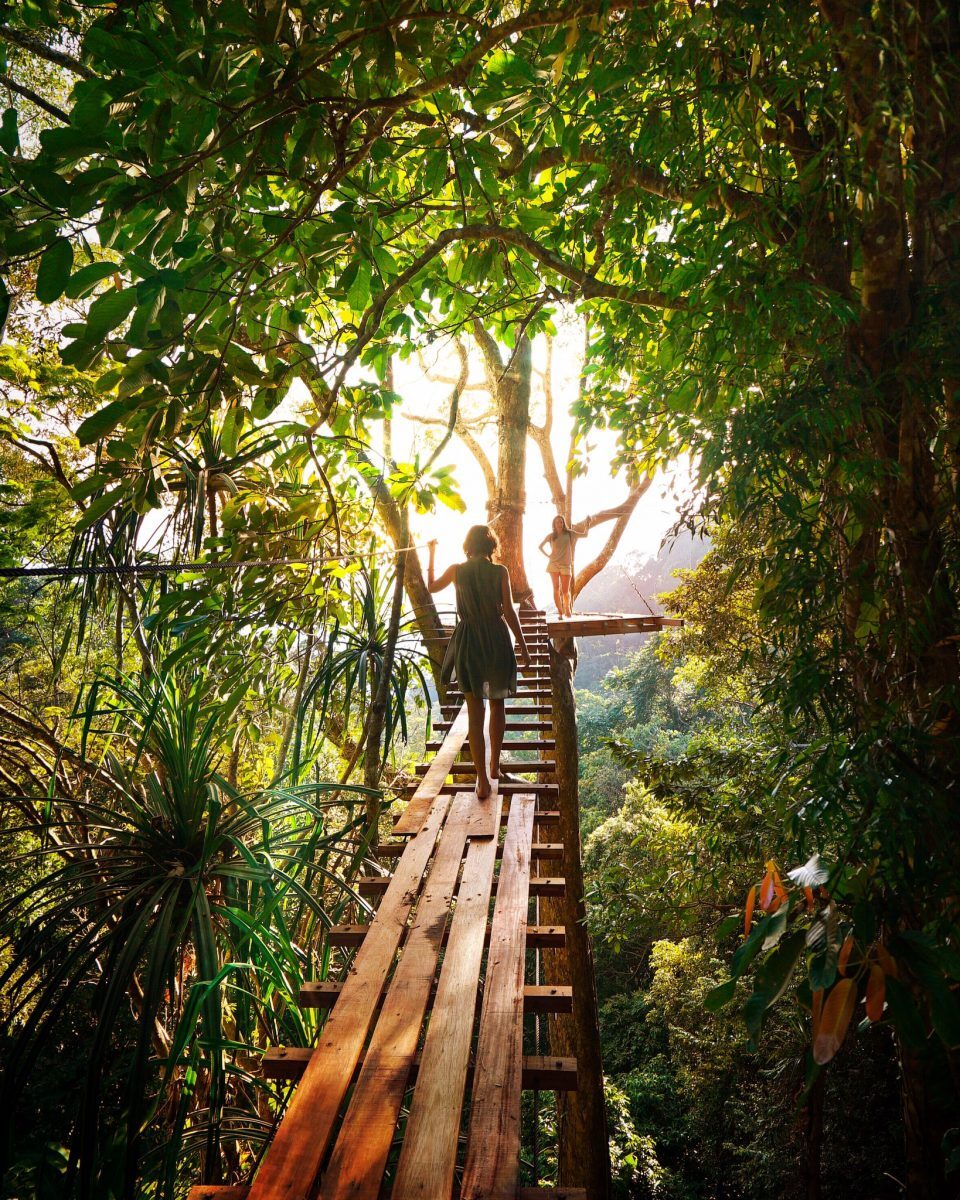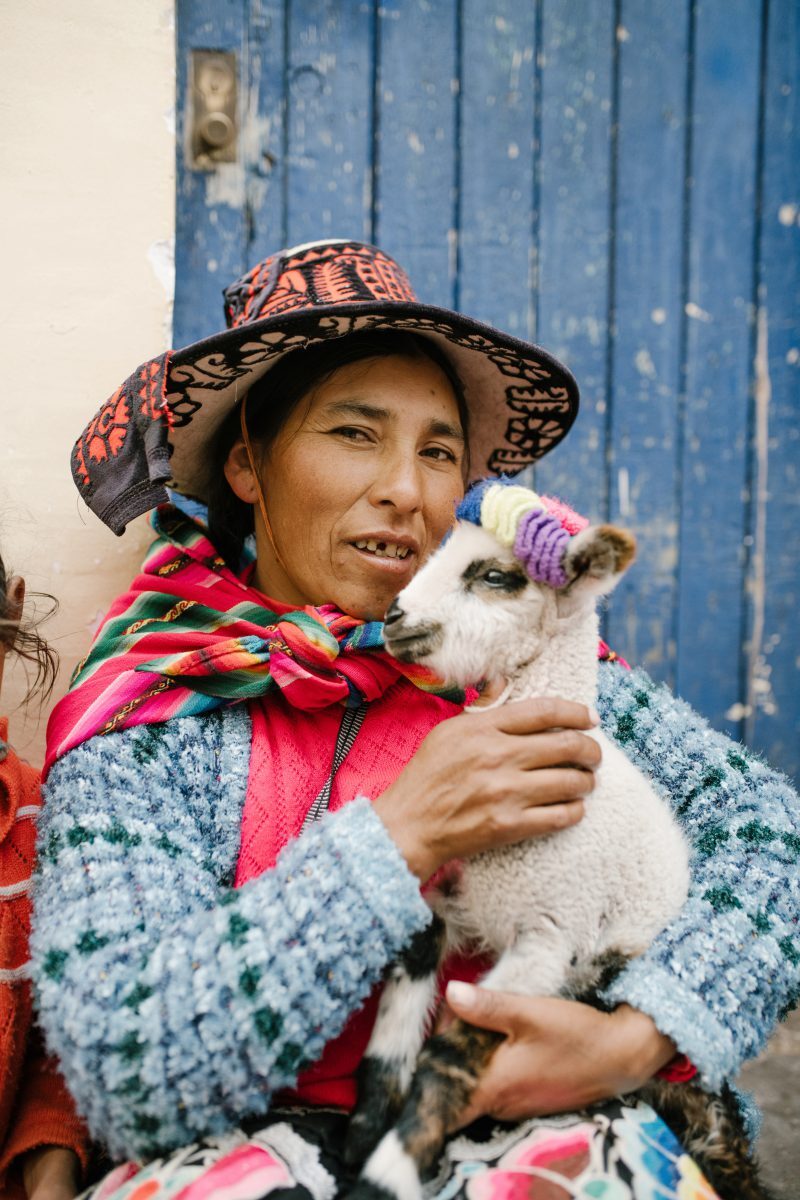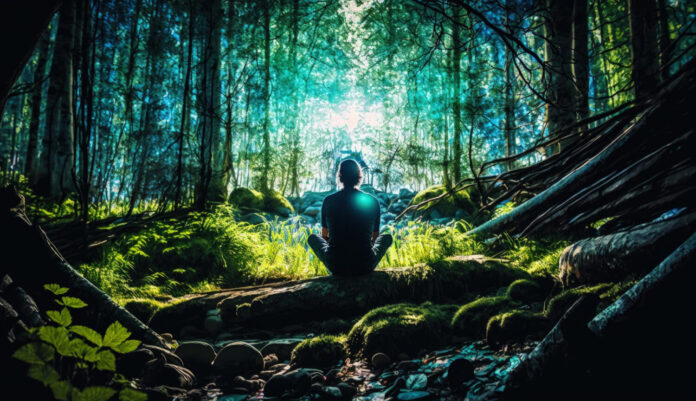In recent years, there have been several reported incidents of deaths occurring at or near ayahuasca retreats. These reports are usually highly-publicized in mainstream media and have made many people wary about drinking ayahuasca or attending a spiritual retreat.
So, why do people die in ayahuasca retreats? In actual fact, deaths directly related to ayahuasca are extremely rare. The connection of recent deaths to ayahuasca almost always involves extenuating circumstances. As a substance, ayahuasca is quite safe, especially when proper safety protocols are followed, including not mixing ayahuasca with other substances, such as SSRI or MAOI antidepressants. There is a wealth of current scientific research into ayahuasca and no recorded cases of deaths or injury during clinical trials.
Despite this fact, there are still a handful of (mostly sensationalized) fatalities that have been associated with ayahuasca retreats. Understanding the reasons behind these deaths can help participants be more informed and stay safe. Keep reading to learn more about ayahuasca retreat deaths and how to benefit from this power plant medicine without becoming an outlier statistic.
Is Ayahuasca Safe?
Although ayahuasca is currently illegal in many parts of the world, it has been used for centuries, if not millennia, for its many health benefits. Ayahuasca rituals are still used in many parts of the indigenous world as part of spiritual and shamanic works. The substance is used by thousands of people throughout the world each year with little to no adverse effects.
While drinking ayahuasca does come with some passing physical side effects, such as nausea, changes to blood pressure, and rapid heartbeat, these side effects are minor and temporary for most people when safety protocols are followed. Ayahuasca’s many benefits for health are being empirically verified at a rapid rate. Exciting new research is emerging showing that ayahuasca reduces inflammation, could potentially help fight cancer, acts as a powerful antidepressant, and promotes neuroplasticity.
The fears and anxieties that can arise as part of a typical ayahuasca journey might make a person feel like they’re dying while in the moment, but the substance itself is objectively safe. The few deaths recorded under the influence of ayahuasca are typically related to some other cause, such as heart attack or psychosis, not ayahuasca overdose. Most of the chemical overdoses associated with ayahuasca retreat deaths are associated with jungle tobacco (Nicotiana rustica), or in some cases additives like toé.
 Ayahuasca Retreats in the Jungle
Ayahuasca Retreats in the Jungle
Reasons Ayahuasca Retreats Can Be Risky
Ayahuasca itself is pharmacologically safe for most people, so ayahuasca retreats should be safe, too, right? The truth is a bit more complicated. Overall, ayahuasca retreats are very safe, from a statistical standpoint. Thousands of people go through an ayahuasca workshop or retreat each year with no lasting ill effects. At the same time, the general risks should be discussed and understood.
The risks associated with ayahuasca retreats are related to several factors:
- Remote, dangerous locations: Ayahuasca retreats are performed in remote jungle settings with few law enforcement officials, lots of language barriers, and a high rate of drug-related crime. Some areas of South and Central America experience cartel activity, which can pose a risk to travelers.
- Lack of medical services: In the case that a person does become ill due to an allergic reaction or becomes injured under the influence, there are few nearby hospitals or other medical facilities available for emergency care.
- Addition of other drugs: There have been several cases of deaths associated with ayahuasca purges, as a potent brew of tobacco tea is often consumed before the ayahuasca is ingested to enhance the effects. The nicotine in jungle tobacco is a powerful diuretic, and—while it is relatively rare to die of nicotine poisoning—it has happened a few times in conjunction with ayahuasca rituals. One somewhat common traditional additive to ayahuasca, toé, can cause dangerous delirium in high amounts.
- Pharmaceutical interactions: Because of MAO inhibition caused by harmala alkaloids, ayahuasca has a risk of harmful interactions. Ayahuasca is potentially dangerous in combination with some street drugs, alcohol, and SSRI antidepressants – but especially dangerous when combined with MAOI medications.
- Comorbid issues: Some fatalities associated with ayahuasca retreats turned out to be unrelated health issues that are exacerbated by the strenuous process of going through an ayahuasca purge. For example, it was first reported the death of French tourist Celine Rene Margarite Briset was a heart attack due to ayahuasca overdose, but it was later revealed that Briset had a pre-existing heart condition that led to her cardiac arrest.
- Homicide: While it is extremely infrequent, there are some reported cases of tourists being murdered in remote third world locations near or during ayahuasca retreats. This is often either the result of simple robbery (taking advantage of a tourist under the influence of a drug which incapacitates them) or the result of a rare paranoid psychotic episode.
As outlined above, most deaths associated with ayahuasca retreats are not related to the substance itself, but rather the environment in which the substance is taken and the physical and psychological health of the person taking the drug.
For example, the death of Henry Miller, in 2014, was initially associated with ayahuasca, but it was discovered through photo evidence of his body that his actual cause of death was a blunt force head injury from falling off a motorcycle.
When Miller reacted badly to ayahuasca, the guides running the ayahuasca retreat did not have the medical knowledge or first-aid equipment on hand to treat Miller’s adverse reaction. They accidentally killed him while trying to get him to a hospital by jungle moped. While a tragedy, Henry Miller’s story (and stories like it) can easily be avoided by choosing a reputable retreat center with medically-trained staff and proper safety protocols.
 Peru is a popular destination for Ayahuasca Retreats
Peru is a popular destination for Ayahuasca Retreats
How to Choose a Safe Ayahuasca Retreat
There is always some level of risk associated with going to an ayahuasca retreat, especially if you are traveling to a remote location in a developing country. With proper attention and research, however, many of the risks associated with attending an ayahuasca retreat can be drastically reduced.
Here are some factors to consider when choosing an ayahuasca retreat:
- Choose an ayahuasca retreat that offers thorough screening prior to participation. A reputable retreat center always has a physical and psychological screening process for participants. Ayahuasca is not suitable for everyone. It is a powerful psychedelic substance with the potential to elicit adverse psychiatric effects in certain people, particularly if they have an undiagnosed mental illness, such as schizophrenia. Pre-participation screening should include detailed questions regarding past and present health, both psychological and physical.
- Choose an experienced ayahuasca retreat. Some ayahuasca retreats around the globe have been practicing for decades, while others are fly-by-night operations that have popped up to take advantage of ayahuasca’s recent popularity. It is the latter variety of ayahuasca retreats that should be avoided since these newer retreats are often illegal and unsafe. Check reviews and testimonials. Psychedelic Experience’s directory can help you see which retreats are more experienced than others. You can also check out our article “How to Choose a Psychedelic Retreat – A Basic Guide“.
- Choose an ayahuasca retreat with medical staff or (at a minimum) support staff trained in first aid. A center should always have trained support staff and helpers, ideally with a 4:1 ratio of participants to staff. Basic first-aid training for staff is a minimal requirement. Some retreat centers also have professional medical staff on call. Always be sure to ask about emergency protocols and be sure to pick an ayahuasca retreat that has first-aid necessities readily on hand, such as snakebite antidotes, antihistamines in case of an allergic reaction, and at least some form of emergency medical access.
- Choose an ayahuasca retreat in a safe area. Many South American retreats take place in countries that are known for prohibition-related violence. Research your location and avoid attending an ayahuasca retreat in areas where there are high crime rates or substantial cartel activity.
- Choose an ayahuasca retreat with good customer reviews. Not only can bad reviews of a retreat be a significant red flag (while good reviews can help put your mind at ease), reviews of ayahuasca retreats often also describe details of the actual ritual, as well as the facility. They can be a good indication of whether it is conducted in safe conditions or not. Psychedelic Experience’s directory can help you find an appropriate center.
- Choose an ayahuasca retreat center that gives back to the community. When choosing a retreat center, it is worth considering the ways in which they engage in reciprocity with their local communities. Many retreat centers are located in developing countries and have close ties with indigenous communities. Some of these connections are maintained respectfully, with sound intentions, while others are not. Unfortunately, exploitation and a lack of consideration for local people and the environment continue to be a problem. Reciprocity and sustainability are important issues for the psychedelic community, especially as psychedelics gain in popularity and the overall number of Western participants continues to increase. Consider asking retreat centers the following questions:
- How do you engage with local communities?
- In which ways do you reciprocate with these communities?
- How do you sure that engagement is respectful and ethical?
- How are you addressing sustainability issues?
- Where and how do you source your materials?
If there is a collective effort to establish and maintain accountability, we can work together for a more sustainable, cooperative world.
For many people, ayahuasca retreats are often a once-in-a-lifetime opportunity. If you are spending a large sum of money to attend a retreat, often with hopes of transformation and healing, it is crucial to choose wisely and safely. A safe and controlled setting can be the difference between a good psychedelic trip and a terrible experience.
Another recommendation to prepare yourself for an ayahuasca retreat is to research ayahuasca thoroughly before committing to taking it. Use Google Scholar to search for current scientific articles and check out quality sources of information regarding ayahuasca, such as ICEERS, MAPS, Kahpi, Ayahuasca.com and Entheonation.
The physical and mental effects of an ayahuasca experience can be very intense, up to and including ego death. Without proper mental and physical preparation, this kind of psychedelic experience can be extremely unpleasant. It is crucial to treat psychedelics with respect, whether they are being taken in a spiritual or recreational setting.
When Is It NOT Safe to Take Ayahuasca?
Ayahuasca rituals are safe for most people as long as safety protocols are followed. However, there are a few cases where it is probably safer to err on the side of caution and avoid ayahuasca.
Here are some of the conditions where it might be a better idea to abstain:
- Comorbid medical conditions: If you have certain medical conditions such as diabetes, hypertension, or cardiovascular issues, not only can the medications associated with these kinds of chronic medical conditions have potentially adverse interactions with ayahuasca, but you could potentially have a cardiac event or other medical crisis. Ayahuasca should not be ingested by people in generally poor health. Always consult with medical professionals and an experienced guide.
- Dangerous settings: Doing ayahuasca in a formal ceremony with guides and medical support staff present is one thing. Doing it in the backroom of a shaman’s hut in a remote jungle village on a whim when you do not even understand the language being spoken around you is risky. Don’t do psychedelics in unsafe settings without a sober guide.
- Predisposition to psychiatric illness: Those who have a strong family history of genetically predetermined mental illnesses, such as bipolar disorder and paranoid schizophrenia, may be at higher risk of having an unpleasant reaction in response to psychedelic exposure. Those who have a personal history of mental illness or a first-degree relative who has schizophrenia or other disorders should be careful with consuming ayahuasca.
- Allergies: If you are strongly allergic to many foods, it’s probably not a good idea for you to ingest a botanical substance you’ve never tried before in the middle of the jungle an hour to two hours from the nearest medical clinic. Always consult with your facilitator and guide, and consider taking a very small dose to test your tolerance before consuming a larger dose.
- Other medications: If you are taking recreational drugs, such as ecstasy or cocaine, or you are on a schedule of antidepressants, these drugs can have dangerous negative interactions with ayahuasca and other psychedelics. It is not a good idea to ingest ayahuasca if you’ve been taking other substances recreationally or if you’re taking any sort of MAOI.
- No medical support services: Do not take ayahuasca without some kind of credible first aid available in case things go awry. If an ayahuasca center doesn’t have support staff available to take care of people during their ayahuasca sessions, then it is very likely that they aren’t a legitimate retreat and shouldn’t be trusted.
- No experienced guides: Ayahuasca should never be taken without a seasoned facilitator who is experienced in the effects of the plant medicine and who can guide those who are altered by it through their psychedelic experience. This is important to alleviate some of the more negative psychological effects that ayahuasca can potentially have, such as paranoid psychosis, overwhelming depression, or anxiety.
For many people, ayahuasca can simulate a near-death experience. While this is a powerful and insightful experience, it can be terrifying for someone who is not being correctly guided through the process. That is why being prepared and having an experienced guide is so important.
How to Be Safe During an Ayahuasca Retreat
Ayahuasca retreats can be transformative if you follow basic tenets of safety.
Here are some tips for being mindful of physical and mental security during an ayahuasca retreat:
- Choose a safe place to take ayahuasca. This is by far the most crucial aspect of being safe during an ayahuasca retreat. Most deaths under the influence of ayahuasca occur either without supervision or under the supervision of people who are incompetent or medically ignorant. Always check credentials and ask about emergency protocols.
- Be mindful of potential drug interactions. Do a careful inventory of the drugs and medicines you are taking and check to make sure that they have no recorded negative interactions with ayahuasca or DMT. It is a good idea to keep your medications and a list of your medications with you on your ayahuasca retreat, just in case. Always disclose medication to retreat staff.
- Get in a good headspace. As with all psychedelics, your mindset is crucial when it comes to ayahuasca. Much of the danger involved in ayahuasca itself is psychological. For those who are not in a good place mentally, a psychedelic experience has the potential to dredge up subconscious anxiety and depression. Make sure that you are confident in your ability to ride out a psychedelic experience. Anticipation of a positive (or negative) experience can have a significant influence on how the experience unfolds.
- Make sure that you get medical clearance before undergoing the retreat. This is especially true if you don’t get regular annual physicals. An undiagnosed heart problem, such as a cardiac arrhythmia, can become deadly under the influence of ayahuasca.
- Practice general travel safety. Most of the common-sense safety precautions associated with international travel can help keep you safe when traveling to the third world for an ayahuasca retreat. Do not flash money or expensive technological gadgets (e.g. smartphones) in developing countries with a higher gang to police ratio. Don’t wander around in dark, strange areas with people you don’t know.
There’s no reason to be paranoid when going to an ayahuasca retreat, as many have been operating for a long time and are well-versed in how a successful ayahuasca trip should be conducted. If you make sure to select a safe, trustworthy place for your retreat, and you have access to medical care, there is little to worry about.
Choosing an ayahuasca retreat that is experienced with observing and protecting those under the influence of ayahuasca is essential. A trustworthy organization will always have thorough screening protocols, a minimum of 4:1 ratio of participants to staff, and a good support structure for emergencies. Ensure that your chosen retreat center has firm protocols in place for when a participant faces a challenging experience, becomes ill, or tries to wander away from the retreat.
Ayahuasca Feels Like Dying, but Shouldn’t Be Deadly
Those who ingest ayahuasca often report a psychological experience like a near-death experience, but if it is administered correctly by professionals, there should be no real threat of death. If you do visit one of the countries where ayahuasca is popular, such as Peru, Brazil, or Colombia, you are much more likely to die in a random car wreck than you are at an ayahuasca retreat.


